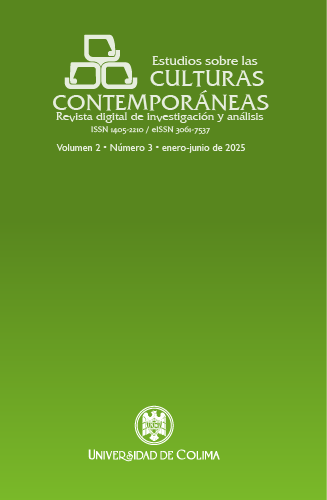Beyond overflowing happiness.
Reflections to think about suicide in Chiapas, Mexico
DOI:
https://doi.org/10.53897/RevESCC.2025.3.07Keywords:
suicide, mental health, ideology, Chiapas, tsotsil communityAbstract
This essay aims to reflect on the manifestation of suicide in contemporary times. Its pigeonholing to causal explanations by health institutions in the State of Chiapas, Mexico, which approach it from biomedical-psychiatric grounds that point to the suffering of depression as its cause. Seek their attention and prevention in ideologies about happiness, success and achievement typical of neoliberal, capitalist, competitive societies, at the service of the globalized neoliberal market. Therefore, at first, a review is made of various thinkers who have taken suicide as an object of study, with the aim of rehabilitating the analyzes that did not pigeonhole it into simplistic, reductionist or ambiguous arguments, to account for the complexity of it. Subsequently, the achievement subjetct and its relationship with depression is addressed, as the basis of mental health discourses that make sociocultural aspects invisible when implementing suicide prevention and care strategies, thus exposing the situation of indigenous communities. especially the tsotsiles, to realize that they are not enough to address it.
Downloads
Metrics
References
Alighieri, D. (1921). La divina comedia. UNAM.
Aristóteles (2010). Ética Nicomáquea. Porrúa.
Bukowski, C. (2006). Mujeres. Anagrama.
Cabanas, E. y Illouz, E. (2019). Happycracia. Cómo la ciencia y la industria de la felicidad controlan nuestra vida. Paidós.
Camus, A. (1995). El mito de Sísifo. Alianza Editorial.
Chávez-Hernández, A. M., y Leenaars, A. A. (2010). Edwin S Shneidman y la suicidología moderna. Salud Mental, XXXIII(4), 355-360.
Cioran, E. (2001). Breviario de podredumbre. Suma de Letras.
Centro Integral de Salud Mental (2021). Prevención del suicidio [Folleto]. Impreso.
de Hipona, S.A. (1988). La ciudad de Dios (Obras completas, vols. XVI-XVII). Biblioteca de Autores Cristianos.
de Aquino, S.T. (1988). Suma de Teología (Tomo III, Parte II-II (a). Biblioteca de Autores Cristianos.
Durkheim, É. (2008). El Suicidio. Akal.
Echeburúa, E. (2015). Las múltiples caras del suicidio en la clínica psicológica. Terapia psicológica, 33(2), 117-126. DOI: https://doi.org/10.4067/S0718-48082015000200006
Foucault, M. (2007). Nacimiento de la biopolítica. Fondo de Cultura Económica.
Geertz, C. (1977). La interpretación de las culturas. Editorial Gedisa.
Gorza, P. (2006). Habitar el tiempo en San Andrés Larráinzar: paisajes indígenas de los altos de Chiapas, México. Universidad Autónoma de México – El Colegio de Michoacán, A.C.
Hume, D. (2002). Del suicidio. De la inmortalidad del alma. Océano de México.
Instituto Nacional de Estadística, Geografía e Informática [INEGI]. (2019). Casos de muerte autoinfligida.
Marx, K. (2012) Acerca del suicidio. La cuarentena.
Montesquieu, C. L. (2002). Del espíritu de las leyes (Tomo I). Ediciones Istmo.
Ortega, M. (2018). Comportamiento suicida. Reflexiones críticas para su estudio desde un sistema psicológico. Qartuppi. DOI: https://doi.org/10.29410/QTP.18.05
Schopenhauer, A. (2013). El mundo como voluntad y representación. Editorial Porrúa.
Platón (1979). Diálogos. Porrúa.
Ruiz, L. (2006). El jchi’iltik y la dominación jkaxlan en Larráinzar, Chiapas. Consejo Estatal para la Cultura y las Artes de Chiapas.
Séneca, L. A. (1943). Cartas a Lucilio. Aguilar.
Vega-Piñero, M., Blasco-Fontecilla, H., Baca-García, E. y Díaz-Sastre, C. (2002). El suicidio. Salud Global, 4(2), 1-15.
Žižek, S. (2016). Problemas en el paraíso; del fin de la historia al fin del capitalismo. Editorial Anagrama.
Published
How to Cite
Issue
Section
Categories
License
Copyright (c) 2025 Diego César Cantoral Cancino, Alan Federico Barrientos Hernández, Jesús Ocaña Zúñiga

This work is licensed under a Creative Commons Attribution-NonCommercial-ShareAlike 4.0 International License.
Estudios sobre las Culturas Contemporáneas permite distribuir, remezclar, adaptar y crear a partir del material en cualquier medio o formato, únicamente con fines no comerciales y siempre que se le dé crédito al creador. Si remezcla, adapta o crea a partir del material, debe licenciar el material modificado bajo términos idénticos. CC BY-NC-SA, incluyendo los siguientes elementos:
BY: se debe dar crédito al creador.
NC: Solo se permiten usos no comerciales de la obra.
SA: Las adaptaciones deben compartirse bajo los mismos términos.










